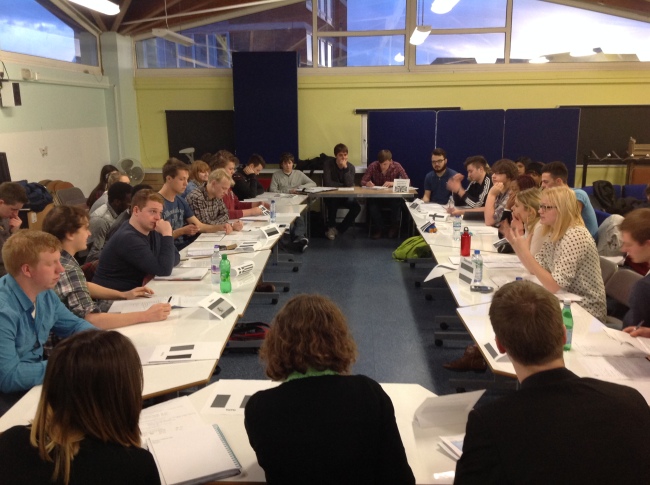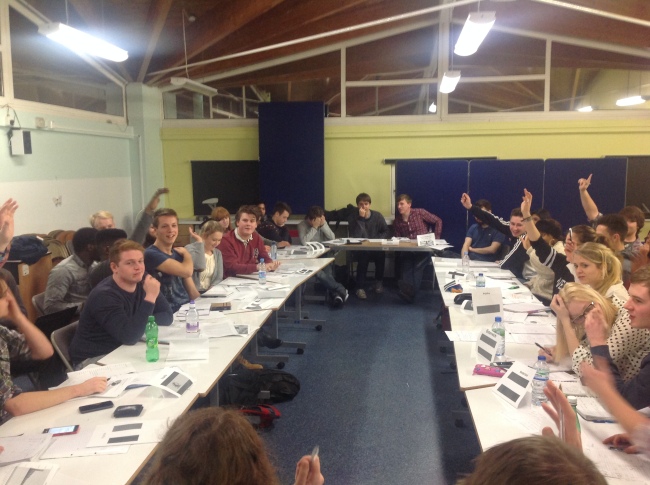On Thursday the 5th of December I ran a European Council simulation for my students on my second year EU: Power, Politics and Integration course. Antonia Mochan from the UK Representation of the European Commission very kindly agreed to Chair proceedings. Despite the date being close to submission deadlines and no marks on offer for participation, the students threw themselves into the negotiations with extraordinary passion and in-depth knowledge. The students were divided up into teams of two representing each of the member states with three students performing the role of the European Commission. After preparation in a seminar earlier in the week the negotiations began. It was wonderful to see how quickly students adapted to what was required of them to achieve consensus and get a unanimous agreement. Break times were used to engage in lobbying, horse trading and coalition building. When there appeared to be no consensus a member state would step up and call for a focus on European ideals and the necessity of compromise. Most fascinatingly the students playing Finland offered a compromise of a mid-term review over the effectiveness of proposed spending plans to assuage the concerns of the contributor states that the money would be wasted. This was a similar outcome of EU budget negotiations in 2007. How wonderful that students and the heads of government of EU member states come up with the same solutions to overcome impasses at negotiations!
Simulations are becoming increasingly part of politics curricula in the UK. In the US whole programmes revolve around simulations held over many weeks facilitated by practitioners. This is not just a fad, I have become strongly convinced of there benefit from an EU studies perspective. For this simulation the students clearly understood how decisions are reached at the EU level. They noted the sacrifices that member states make to get an agreement, how calls to follow EU ‘values’ was key to securing comprise, and also the importance of informal discussions at break time to develop alliances ahead of formal discussions over the negotiating table. There are also clear employability benefits with many students commentating how it was their first opportunity to work as a team outside of presentations (they noted a strong difference between the two tasks – they hate presentations), the demand of processing large amounts information quickly and focusing in on the key data that was relevant to them, not just speaking in public but persuading/negotiating in public. Clearly the dynamic environment of the simulation plays a central role for students in emphasizing key skills that strike them as being important in their future careers that they just don’t get from presentations.
One key point that needs to be emphasized however was the role played by the practitioner, Antonia Mochan, in the process. Having someone with direct experience of simulations was extremely beneficial in that it focused the minds of the students, she was able to add anecdotes of how the students were copying behaviour she had seen in real negotiations and the basic skill of following EU protocol. Simulations are a fantastic exercise for academics to use in their teaching but the key lesson from this experience was the necessity of practitioner participation. Working with individuals from outside of academia is key, to give simulations that extra layer or realism and appreciation for the wider skills they are developing. The subject specific knowledge flowed quite easily from the simulation to students. It is the non-academic skills that they develop in simulations that i will be focusing on for my next round of simulations.
 Politics
Politics Anna Vanaga
Anna Vanaga 518
518




